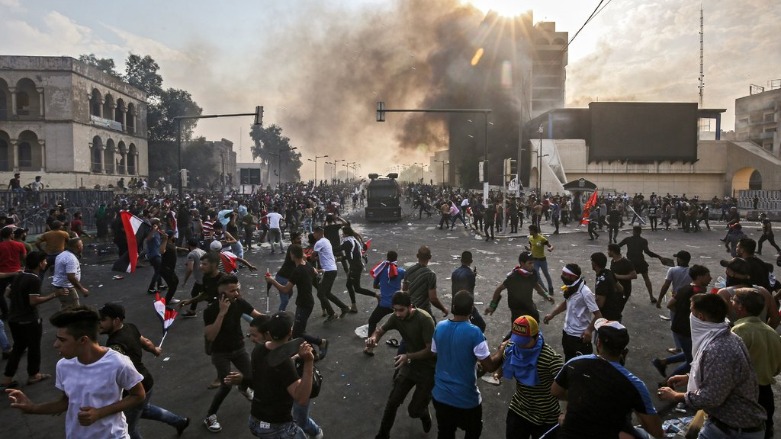UN expresses concern over violence during recent protests in Iraq

ERBIL (Kurdistan 24) – The UN Special Representative of the United Nations Secretary-General for Iraq, Jeanine Hennis-Plasschaert, expressed grave concern over violence that erupted during Tuesday’s protests in Baghdad.
At least two protesters died and over 200 others were wounded on Tuesday after Iraqi security forces fired on demonstrators at the capital's central Tahrir Square in an attempt to crack down on mass protests.
The demonstrations quickly spread to others expressing their frustration with the federal government’s failure to tackle corruption.
The UN Envoy to Iraq called for calm and “deeply regrets the casualties among both the protesters and security forces.”
She asserted that Iraqis have the right to protest, stressing that “every individual has the right to speak freely, in keeping with the law.”
Hennis-Plasschaert also urged authorities “to exercise restraint in their handling of the protests to ensure the safety of peaceful protesters while upholding law and order and protecting the people, public and private property.”
Iraqi President Barham Salih on Tuesday evening also stated on Twitter that a “peaceful demonstration is a constitutional right, guaranteed for civilians.”
“Our sons in the security forces are authorized to protect civilians’ rights and preserve the public security,” he stated.
He ultimately called for self-control and respect for the law. “Our sons are the Iraq youth who look forward to reform and work opportunities, and it’s our duty to fulfill these legitimate demands.”
These protests are the first serious challenge for Baghdad, one year after the new Iraqi government under Prime Minister Adil Abdul-Mahdi was formed.
In 2018, protests in Basra challenged the government over corruption, unemployment, and the lack of public services.
Last summer experts and Iraqi officials expected new protests over the poor delivery of services, but this failed to materialize. In a statement, the Iraqi Prime Minister promised an official investigation into the causes of the “incidents.”
He also said the government had formed commissions to meet the “popular demands” of Iraqis.
Abdul-Mahdi also affirmed that protestors have a constitutional right to protest peacefully but admonished those “who intentionally cause death by shouting slogans that threaten public order and public peace.”
Professor Toby Dodge of the London School of Economics, in a piece published on Chatham House on Tuesday, warned that now that the Islamic State was defeated, Iraqis are increasingly frustrated with corruption within the Iraqi system.
Opinion polls show that 82 percent of Iraqis were concerned or very concerned about corruption.
”Endemic corruption is now the main threat to Iraq’s stability, alienating the population from its ruling elite and driving young people into a protest movement that demands radical change,” he wrote.
He warned that “if Iraq’s political system is not reformed, it is a divide that will further destabilize the country going forward.”
Editing by Nadia Riva
